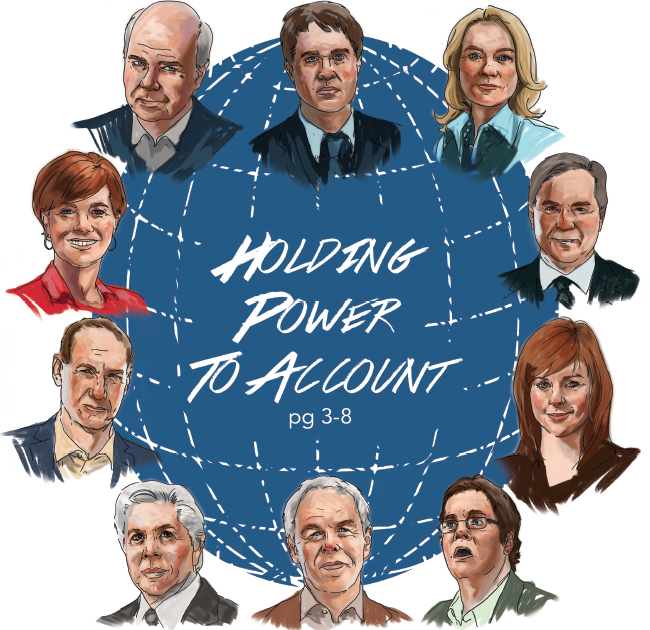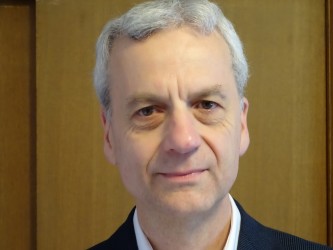Exactly 40 years ago this month, two journalists at the Washington Post published a book about the Watergate break-in called All the President’s Men.
The book chronicled one of the biggest political scandals in history, a conspiracy to bug the offices of a political rival and then cover up the case by all means possible. The most amazing aspect of the case was that it involved the president of the United States.
Two months after the book came out, President Richard Nixon left office in disgrace. Woodward and Bernstein became folk heroes in the journalistic community and beyond. Soon they were being portrayed in Hollywood by Robert Redford and Dustin Hoffman, and journalism schools were suddenly flooded with applications.
I was caught up in that wave of excitement too. It was hard not to be, since Watergate and its aftermath inspired journalists everywhere to hold powerful interests to account. If the president of a powerful nation could resign as a result of journalistic inquiry, anything seemed possible.
Watergate didn’t create the modern era of investigative journalism, but it certainly sent it to a higher plane. The social forces of the 1950s and especially the 1960s provided fertile ground for aggressive inquiry. Youth and students around the world were rebelling against unjust wars and regimes. Anti-colonial struggles were raging everywhere, and in the U.S. the civil rights movement was reaching a fever pitch. Americans of all stripes began to question the Vietnam War and all the assumptions behind it.
Alternative media began to challenge the status quo as never before. Soon, the mainstream began to pay attention. A docile press gave way to platoons of nosy reporters who refused to take stock answers by politicians at face value. Watergate showed every reporter what was possible. The 1970s was a high water mark for investigative journalism.
The genre has ebbed and flowed since then, but the idea of holding powerful interests to account has never gone away. Today, with revelations by WikiLeaks and Edward Snowden, the actions of powerful regimes are once again under the microscope. That’s why we think it’s entirely appropriate to convene a conference with the name: Holding Power to Account.
The University of Winnipeg and the CBC are both public institutions with different mandates but with some common aims. We stand for informing and enlightening people, bringing information and knowledge to the forefront. CBC Manitoba has a proud tradition of investigative journalism, as does the network as a whole. In fact, CBC has been at the forefront of broadcasting investigative journalism for more than half a century.
We’re happy that Carl Bernstein will be attending the conference, 40 years after his groundbreaking book hit the shelves. He will be talking about the lessons and legacy of Watergate. The story continues to inspire, and he will be delivering his message to a new generation of journalists.
Also in attendance are many of CBC’s most influential investigative journalists, from Linden MacIntyre and Bob McKeown of The Fifth Estate to correspondents Diana Swain and Adrienne Arsenault. We also have Radio-Canada’s top investigators on board, with Alain Gravel and Marie-Maude Denis of Enquete. They were responsible for uncovering and first reporting on the construction and political scandal in Quebec that now forms the basis of the Chabonneau inquiry.
More than 70 speakers will be in attendance from all over the world, including Canada, the U.S., South Africa, Botswana, Uganda, Austria, Nepal, India, Bosnia, Germany, Australia, and other countries. A number of young journalists are coming from different countries to share their experiences working in difficult conditions.
We will also hear from David Milgaard, a man who spent nearly 23 years in prison for a murder he didn’t commit. Investigating wrongful convictions has been an important part of the work Canadian journalists have done for the last 50 years, and Milgaard’s case provides a good case in point.
In all, it’s going to be an exciting weekend. More than 300 people have registered to take part in the proceedings. As our conference program says, holding powerful interests to account is one of journalism’s most important missions. It’s critical to democracy and the preservation of human rights. We hope this conference makes a modest contribution to ensuring that the work continues.
Follow the #wpginvestigates for updates throughout the conference.




